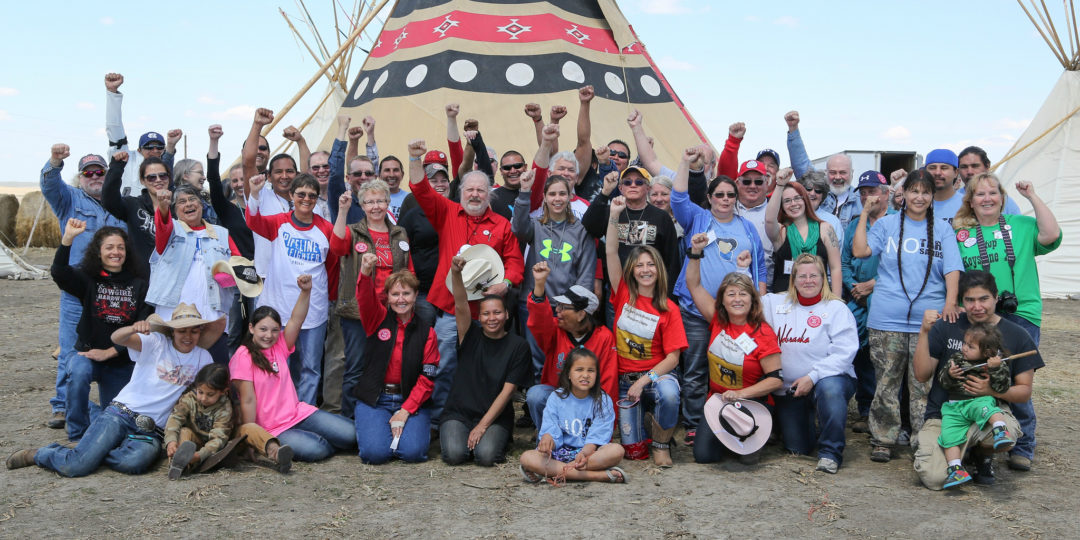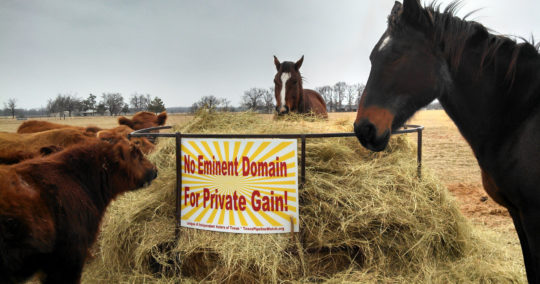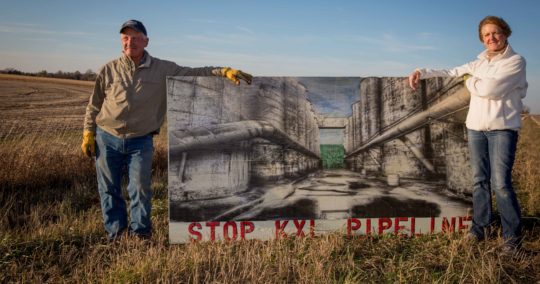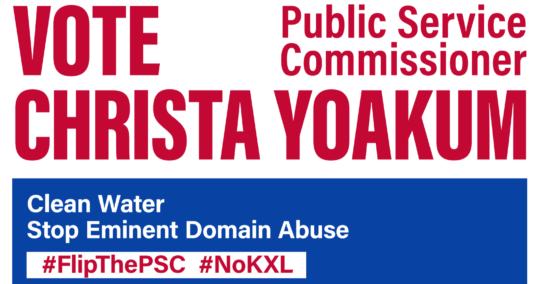
The Trump Administration’s State Department just published a hastily-produced “Environmental Assessment” that concludes the proposed Keystone XL pipeline would produce only “minor” impacts to our land, water, endangered species and Native American sacred sites in Nebraska like the Ponca Trail of Tears.
A new 30-day public comment period on this sham review is now open, and we must make our voices heard.
There will be *no* additional public hearings — a violation of due process for the directly affected landowners on the Mainline Alternative route — who didn’t know until late 2017 that KXL might be plowing through their farms, or coming as close as 100 feet from their homes and private wells.
We’re outraged at this violation of due process — and Bold, along with Tribal Nations and other environmental groups, continue to challenge the Trump administration’s rubber-stamp approval of a federal permit for KXL in court.
But right now, it’s critical to submit a comment so the Trump Administration knows you stand with us against the pipeline.
The Environmental Assessment states that, while “cultural resources” reviews remain ongoing, the Mainline Alternative route, which would cross the historic Ponca Trail of Tears, and come within 25 miles of the grave of Standing Bear, would have only “minor” impacts on these sacred sites. [1] Tribal Nations have continuously protested that TransCanada and the U.S. government have failed to conduct proper consultation with them about the project as sovereign nations.
This route also includes fragile sandy soils and and sensitive water crossings in Nebraska counties that have never before undergone environmental review — and still haven’t, because this sham “Environmental Assessment” took any and every shortcut possible to rely on the outdated 2014 review, in violation of key federal environmental protection laws.
- Oil spills: The review includes analysis of the effects of a potential tarsands oil spill from Keystone XL and its disastrous effects on pristine farmland, native prairie grasses, aquifers and other water bodies like the Missouri River, where a spill could travel more than 40 miles downstream and contaminate drinking water for Lincoln and Omaha. It concludes only “minor” potential impacts from a tarsands spill into our precious Ogallala aquifer, or into the sandy soils that make up the “prime farmland” that comprises 72% of the route.
- Endangered species: The review ignores science at every turn to find only “minor” or “negligible” impacts on Endangered Species whose habitat is in the pipeline’s path, including the beloved and iconic Whooping Crane.
- Construction issues: The review notes that TransCanada plans to use the same controversial and dangerous construction technique of “weighting” the pipeline down near water bodies and in floodplain areas, which was shown to cause protective coating to erode leading to a 407,000-gallon spill on the company’s original Keystone Pipeline in South Dakota in 2017. [2] TransCanada has also seen other recent spills and catastrophic failures on its pipelines, including an explosion on its less-than-year-old Leach Xpress gas pipeline in West Virginia in July. [3]
Despite the illegal sham environmental review process that’s been set in motion — which we will continue to fight in the courts — it’s critical that all Pipeline Fighters sign on and tell the Trump administration they stand with us against Keystone XL.
Add your name to tell the Trump Administration: NO Keystone XL pipeline.
(*Note: If you’re a landowner on the KXL route, we strongly encourage you to compose your own detailed, individual comment and submit directly to the State Dept. via the form at this link.
Include speciifc references to your property’s location, and any significant features or concerns you have about KXL. If you’d like assistance with composing your comment, email mark@boldnebraska.org.)



